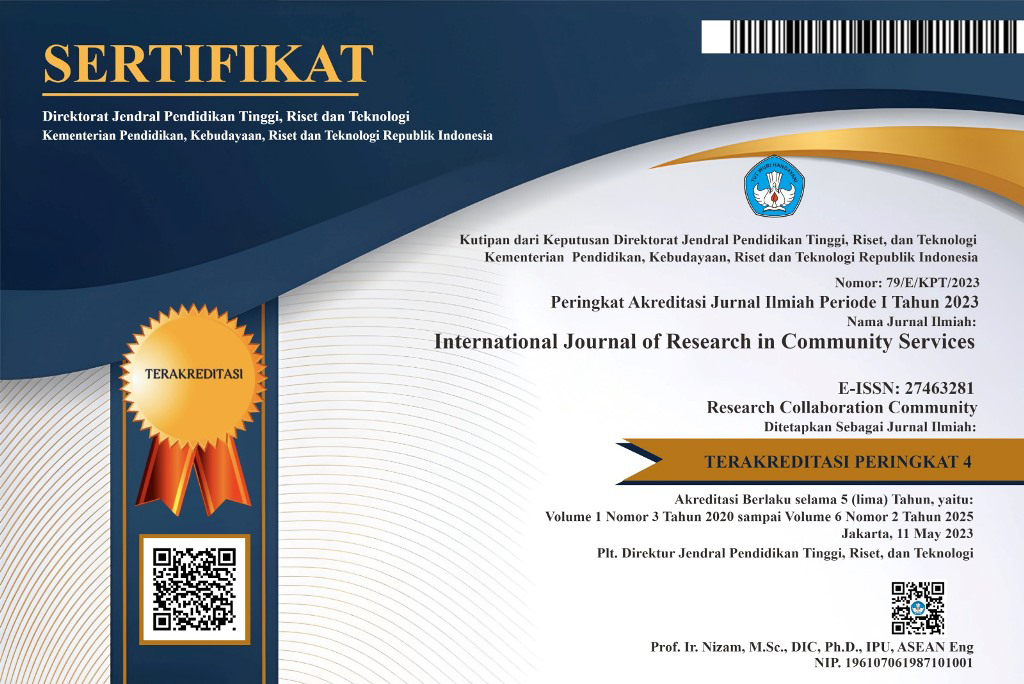Legitimacy of the Dissolution of Beliefs by Community Organizations
Abstract
Article 28E paragraph (1) of the 1945 Constitution states "Every person shall be free to choose and to practice the religion of his/her choice, to choose one’s education, to choose one’s employment, to choose one’s citizenship, and to choose one’s place of residence within the state territory, to leave it and to subsequently return to it.” In paragraph (2), everyone has the right to the freedom to believe in his/her beliefs, to express his/her views and thoughts, according to his/her conscience. The constitutional guarantees for believers can also be seen in Article 29 of the 1945 Constitution stating that the state shall be based upon the One and Only God and the State guarantees all persons the freedom of worship, each according to his/her own religion or belief. The Constitutional Court affirms that the right to adhere to a religion or belief in God Almighty is a citizen's constitutional right, not a gift from the state. Therefore, the state is obliged to protect and guarantee the fulfillment of the rights of it’s the citizens to embrace a belief other than the six religions developed in Indonesia. However, in practice the dissolution of beliefs is actually carried out by community organizations. In this study, two things will be discussed namely: 1) What is the legal position of adherents of belief in the national legal system? 2) Do community organizations have the authority to dissolve religious beliefs? This research is normative juridical research, in which the problems in this research are analyzed qualitatively.
Keywords
Full Text:
PDFReferences
Astuti, G. F. Y. (2015). Relevansi Hukum Pidana Adat Dalam Pembaharuan Hukum Pidana di Indonesia. Pandecta Research Law Journal, 10(2), 195-214.
Azis, A., and Yamin, M. N. (2019). Peranan Kantor Kementerian Agama Kabupaten Gowa Dalam Mengantisipasi Aliran Sesat (Studi Kasus Kantor Kementerian Agama Kabupaten Gowa). Birokrat, 8(2), 77-99.
BBC, “Puluhan orang bubarkan acara Ahmadiyah di Bandung, panitia 'pasrah', polisi bantah 'mendampingi' massa” https://www.bbc.com/indonesia/indonesia-46767823.
Budijanto, O. W. (2016). Penghormatan hak asasi manusia bagi penghayat kepercayaan di kota bandung. Jurnal HAM, 7(1), 35-44.
Ceswara, D. F., and Wiyatno, P. (2018). Implementasi Nilai Hak Asasi Manusia Dalam Sila Pancasila. Lex Scientia Law Review, 2(2), 227-241.
Fatmawati, F. (2016). Perlindungan Hak Atas Kebebasan Beragama dan Beribadah dalam Negara Hukum Indonesia. Jurnal Konstitusi, 8(4), 489-520.
Fauziyyah, H., & Dewi, D. A. (2021). Implementasi Nilai–Nilai Pancasila Dalam Menghindari Aliran Sesat Di Kehidupan Beragama Masyarakat Indonesia. Jurnal Edukasi Nonformal, 2(1), 180-187.
Haas, M. (2013). International human rights: A comprehensive introduction. Routledge.
Handoko, D. (2019). Kajian Terhadap Hak atas Kebebasan Beragama dan Berkeyakinan serta Hak atas Pekerjaan. Ajudikasi: Jurnal Ilmu Hukum, 3(1), 53-74.
Hendrik Khoirul Muhid, “Setelah Kerajaan Ubur Ubur Muncul Aliran Hakekok, Ini 6 Aliran Sesat Lainnya”, https://nasional.tempo.co/read/1441818/setelah-kerajaan-ubur-ubur-muncul-aliran-hakekok-ini-6-aliran-sesat-lainnya/full&view=ok
Jatmiko, B. J. (2018). Menelisik Pengakuan Dan Perlindungan Hak-Hak Asasi Politik Pasca Perubahan UUD 1945. Jurnal Panorama Hukum, 3(2), 217-246.
Jufri, M. (2020). Potensi Penyetaraan Agama Dengan Aliran Kepercayaan Di Indonesia. Jurnal Yudisial, 13(1), 21-36.
Kansil, CST. and Christine S.T. Kansil. (2003), Sekitar HAM Dewasa Ini, Jakarta: Djambatan.
Koentjaraningrat. (1994), Kebudayaan Jawa, Jakarta: Balai Pustaka.
Mahfud MD. (2010). Perdebatan Hukum Tatanegara Pasca Amandemen Konstitusi, Jakarta: Rajawali Pers.
Marzuki, S. (2019). Politik Hukum Hak Asasi Manusia Tentang Kebebasan Beragama Pasca Orde Baru. Jurnal Hukum Ius Quia Iustum, 26(2), 215-237.
Muhtaj, M. E. (2016). Dimensi-dimensi HAM: Mengurai Hak Ekonomi, Sosial, dan Budaya. Jakarta: RajaGrafindo Persada.
Nasution, A. R. (2019). Kebebasan Beragama Dalam Tinjauan Hak Asasi Manusia. Jurnal Hukum Responsif, 6(6), 67-92.
Nusa Bali, “8 Elemen Masyarakat Gerudug Sri Jagatnatha Gourangga Ashram Wujud Dukung terhadap MDA dan PHDI Bali Pasca Disomasi MKKBN”, https://www.nusabali.com/berita/94633/8-elemen-masyarakat-gerudug-sri-jagatnatha-gourangga-ashram
Oktavihana, S., and Prameswari, N. P. (2021). Keabsahan dan Akibat Hukum Perkawinan Penghayat Kepercayaan Pasca Terbitnya Putusan Mahkamah Konstitusi Nomor 97/PUU-XIV/2016. Notaire, 4(3), 441-466.
Purba, I. P., & Yudi, P. (2019). Implementasi Jaminan Konstitusi terhadap Kebebebasan Beragama dan Berkeyakinan di Indonesia. JPK (Jurnal Pancasila dan Kewarganegaraan), 4(2), 40-52.
Satriawan, M. I. (2015). Perlindungan Hukum Terhadap Aliran Menyimpang Di Indonesia. Fiat Justisia: Jurnal Ilmu Hukum, 9(1).
Siregar, G. T., Silaban, R., & Gustiranda, P. (2020). Kebangkitan Hak-Hak Sipil Penghayat Kepercayaan Parmalim Pasca Pasal 61 Ayat (1) Putusan Mahkamah Konstitusi Nomor 97/Puu-Xiv/2016 Di Kota Medan. Jurnal Rectum: Tinjauan Yuridis Penanganan Tindak Pidana, 2(2), 75-84.
Sukirno, S. (2019). Politik Hukum Pengakuan Hak atas Administrasi Kependudukan Bagi Penganut Penghayat Kepercayaan. Administrative Law and Governance Journal, 2(2), 268-281.
Sukirno, S., & Adhim, N. (2020). Implementasi Putusan Mahkamah Konstitusi No. 97/PUU-XIV/2016 pada Masyarakat Adat Karuhun Urang di Cigugur. Jurnal Penelitian Hukum De Jure, 20(1), 11-24.
Sulaiman, S. (2018). Problem Pelayanan terhadap Kelompok Penghayat Kepercayaan di Pati, Jawa Tengah. Jurnal SMART (Studi Masyarakat, Religi, Dan Tradisi), 4(2), 207-220.
Syarif, D., & Fakhruroji, M. (2017). Faktor psikologis dan sosiologis kemunculan aliran sesat aliran quraniyah di Jawa Barat. Al-Tahrir: Jurnal Pemikiran Islam, 17(1), 49-76.
Viri, K., & Febriany, Z. (2020). Dinamika Pengakuan Penghayat Kepercayaan di Indonesia. Indonesian Journal of Religion and Society, 2(2), 97-112.
Widyaningrum, T. (2018). Pengaturan Hak Kebebasan Berkeyakinan Penghayat Kepercayaan Terhadap Tuhan Yang Maha Esa Dalam Perspektif Negara Hukum Demokratis Indonesia. Jurnal Hukum Staatrechts, 1(1).
DOI: https://doi.org/10.46336/ijrcs.v3i1.182
Refbacks
- There are currently no refbacks.
Copyright (c) 2022 International Journal of Research in Community Services

This work is licensed under a Creative Commons Attribution 4.0 International License.
Published By:
IJRCS: Jalan Riung Ampuh No. 3, Riung Bandung, Kota Bandung 40295, Jawa Barat, Indonesia
Indexed By:

This work is licensed under a Creative Commons Attribution 4.0 International License.
View My Stats








